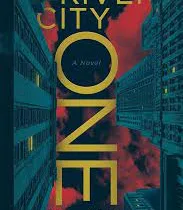Nigel Hamilton’s third and final volume on FDR’s war leadership, War and Peace: FDR’s Final Odyssey D-Day to Yalta, 1943-1945, is, like his earlier two books, an homage to the President’s strategic sagacity. FDR’s nemesis is Churchill, whose own strategic intuition is, for Hamilton, “deplorable.”
FDR never wrote any memoirs, while Churchill’s multi volume WWII history is legendary, so Hamilton explains his narrative recounts FDR’s under-appreciated war leadership. In his first volume, which I reviewed here, Hamilton recalled how FDR thankfully overruled generals like George Marshal who unwisely wanted an unprepared America to invade France in 1942. Instead, FDR insisted on more modestly invading North Africa, prompting his generals and war secretary to grouse he’d been manipulated by Churchill.
But Hamilton’s latest volume recounts how FDR, this time in sync with his generals, repeatedly blocked Churchill’s preference for military operations in the Mediterranean over any cross channel invasion of France in 1944. Churchill with his generals feared a reprise of WWI carnage in France and hoped to protect British imperial interests in the Mideast.
In one confrontation, General Marshall shouts to Churchill that not one “G-damned” American soldier will die on the beaches of Rhodes, the obscure Greek island with which Churchill was obsessed. FDR was unfailingly more gentle and indirect as he steered the Anglo-American alliance towards the invasion of France required for Germany’s defeat. Even as D-Day fast approached, Churchill insisted on distracting renewed offensives in Italy to take Rome, or plotted Allied attacks in Greece or the Balkans. Hamilton faults Churchill for orchestrating the costly months-long imbroglio at Anzio, which delayed D-Day by one month and further postponed the invasion of southern France. Both assaults on France resulted in far fewer casualties than Churchill had warned, and each was far less bloody than Anzio, which Churchill understandably feared reprised his WWI Gallipoli disaster.
Hamilton repeatedly insists on his admiration for Churchill as heroic political statesman who rallied his nation from near defeat in 1940. But Hamilton asserts Churchill presided over nearly uninterrupted military defeats after the Battle of Britain, excepting El Alamein, where American resupply had been crucial. Such disasters may have continued absent FDR’s supervision and insight.
Even after D-Day, Churchill advocated implausible offensives to take Vienna and Berlin, which FDR or Eisenhower vetoed. Yet FDR sagely sustained a genuine friendship with his British partner, whom he sincerely enjoyed and admired, even if Churchill was often obstinate, mercurial and exhausting. The British premier was a brilliant and voluble dynamo who never paused and rarely listened amid the force of his inimitable rhetoric. FDR by contrast was a silken charmer who more quietly seduced and coaxed. Hence Churchill is often unfairly more credited than FDR for WWII victory, Hamilton laments.
Though critics have long alleged FDR was naive about Stalin, Hamilton believes FDR was more effective than Churchill in managing the Soviets at the Teheran and Yalta summits. FDR appreciated that superior Soviet manpower was central to defeating Germany and ultimately would be needed to defeat Japan, absent atomic weapons. Churchill’s preference to wage war in Europe’s supposedly soft underbelly would have left Hitler either in place longer or ultimately overrun by the Soviets, who would then also have had not only Germany but Western Europe exclusively in their grasp.
Hamilton admits but perhaps underplays Churchill’s superior wisdom over FDR in wanting to resurrect France as a significant power and initially resisting FDR’s ill advised idea, touted by his treasury secretary but later disavowed by FDR, to deindustrialize postwar Germany, which Churchill called “unChristian and unnecessary.”
Much of Hamilton’s story is dominated by the ongoing collapse of FDR’s health, the last vestiges of which the President carefully stewarded until within weeks of victory over the Third Reich. As Canadian Premier Mackenzie King recounted at their last meeting, FDR even when dying was gentle, suave and humorous. Like Churchill, he was a consummate performer who knew his audience, though his stagecraft was less bombastic.
Hamilton is himself British, and he was the official biographer of Field Marshal Montgomery, so his ardent partiality for FDR over Churchill is somewhat surprising. He appreciates but maybe understates how FDR needed Churchill no less than vice versa. Each championed the interests of their respective nations, which sometimes overlapped but also differed more than is sometimes remembered.
FDR and Churchill had very different temperaments but much wider commonalities, which included a shared Anglican patrician sense of religious and patriotic duty towards their shared Anglo-American patrimony. They both loathed and sought to destroy Hitlerism, which they easily recognized as the antithesis of their own overlapping cultures and public moralities. Each embodied the highest aspirations and sensibilities of their respective countries.
Hamilton’s ode to FDR’s vision partly at Churchill’s expense may unsettle some admirers of the latter. Doubtless Andrew Roberts’ new Churchill biography, next on my list, offers a rebuttal. But Hamilton helps appreciate that the FDR/Churchill and USA/British partnership was both robust and knotty. That partnership was providential for humanity and still models how liberty-loving peoples prevail against aggressors and tyrants. Had FDR survived to author his own memoir, he doubtless would have said so, with full credit to Churchill.






